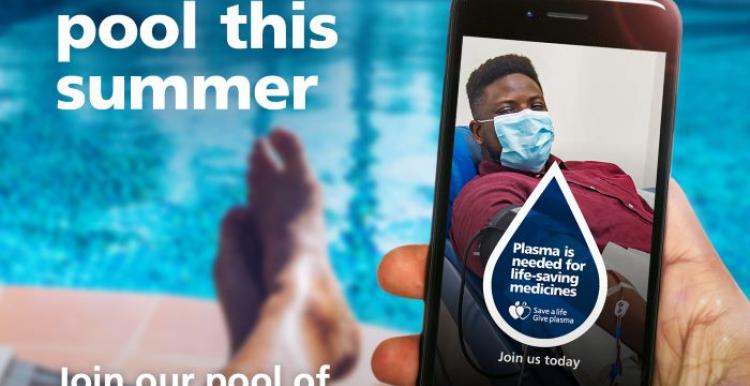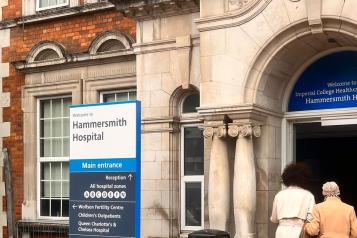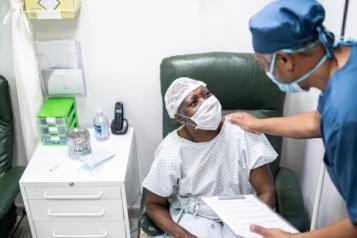Plasma Donors Needed in London - Lack of Awareness After 23 Year Gap

Plasma donation only restarted in April after a gap of more than 20 years and few people know what plasma donation is. An NHSBT survey shows only 23% of the public know about it.
This lack of awareness is contributing to a shortfall in donors. There are:
638 active plasma donors at the Croydon plasma donor centre, compared to the 1,050 needed by now.
1,035 active donors at the Stratford donor centre, compared to the 1,400 needed by now.
1,069 active donors at the Twickenham donor centre, compared to the 1,400 needed by now.
Targets are rising as the programme expands. In total, NHSBT needs 4,600 people to start donating plasma in London in the next three months. (1,300 at Croydon, 1,700 at Stratford, and 1,600 at Twickenham).
Last year, 3,905 people from London received antibody medicines made from plasma.
To recruit the lifesaving donors needed, NHSBT is working with partners and running a campaign with a call to ‘join the donor pool’ over the summer, asking people who may not be able to enjoy a holiday to help build the pool of active donors. NHSBT will be working with national and local partners to drive new donors to the 11 new plasma donor centres.
The campaign will include educational content on what plasma donation is. There was a ban on using plasma from UK donors for these medicines from 1998 to February 2021, as a vCJD safety precaution. The independent experts of the MHRA concluded it could safely be restarted.
Donated plasma is made into antibody medicines known as immunoglobulins, which are used to save the lives of people with immune disorders. Around 17,000 people a year receive these medicines.
They are mainly used to treat immunodeficiencies (for example, when people lack antibodies to fight infections) and neurological disorders (for example, when the body’s immune system is attacking itself).
Currently the NHS depends entirely on imports of blood plasma from other countries – mainly the US – to manufacture immunoglobulins. Donation to NHSBT will bolster long term NHS supplies. The plasma being donated to NHSBT now will reach hospitals from 2022 onwards, following a manufacturing process to turn it into a medicine.
Henry Jarvis, Twickenham Donor Centre Manager, said: “After a gap of more than 20 years it’s understandable that not many people in London know about plasma donation.
“Now we need the public’s help to expand our pool of plasma donors and meet the targets which will help make England more self-sufficient in the supply of these lifesaving medicines.
“We particularly want to hear from men because they’re more likely to be able to donate.
Please support this campaign and donate plasma at our centre - you will save lives.
To donate plasma, visit blood.co.uk/plasma or call 0300 123 23 23.


